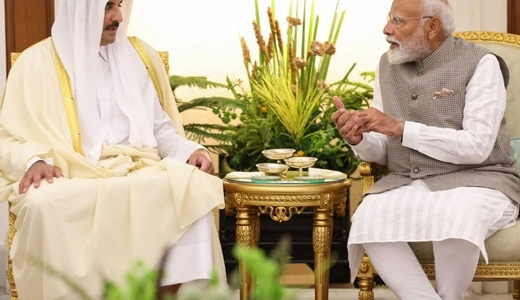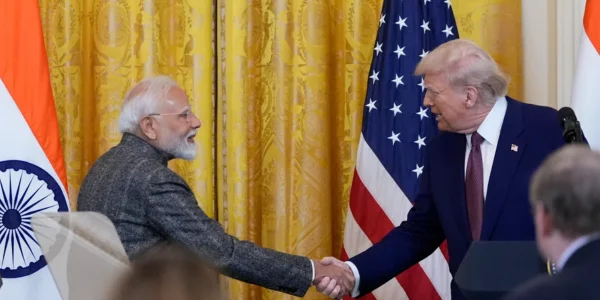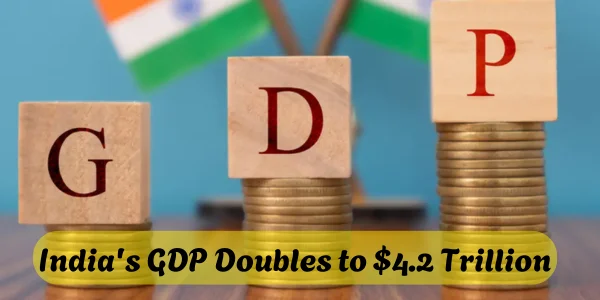Nations aim to double bilateral trade to $28 billion by 2030
In a significant diplomatic development, India and Qatar have elevated their bilateral relations to a Strategic Partnership, setting an ambitious goal to double their trade volume to $28 billion by 2030. This milestone was achieved during the two-day state visit of Qatar’s Emir, Sheikh Tamim bin Hamad Al-Thani, to New Delhi, where he engaged in comprehensive discussions with Indian Prime Minister Narendra Modi.
Strengthening Economic Ties

The decision to enhance the partnership reflects both nations’ commitment to deepening economic and strategic cooperation. Currently, the bilateral trade between India and Qatar stands at approximately $14 billion. The leaders have expressed a mutual desire to not only double this figure over the next five years but also to diversify the trade portfolio. Key sectors identified for collaboration include energy, technology, healthcare, food processing, pharmaceuticals, and emerging fields like green hydrogen.
Exploring a Free Trade Agreement
A notable outcome of the discussions is the agreement to explore the possibility of a bilateral Free Trade Agreement (FTA). Such an agreement aims to facilitate smoother trade relations by reducing tariffs and addressing market access issues related to goods and services. The initiation of FTA negotiations signifies a strategic move to bolster economic ties and create a more conducive environment for business and investment.
Qatar’s Investment Commitment
Demonstrating a strong commitment to this enhanced partnership, Qatar has pledged to invest $10 billion in various sectors within India. The Qatar Investment Authority (QIA), the country’s sovereign wealth fund, will spearhead these investments, focusing on infrastructure, technology, manufacturing, food security, logistics, and hospitality. This substantial investment is poised to stimulate economic growth and foster innovation across multiple industries in India.
Energy Cooperation
Energy collaboration remains a cornerstone of the India-Qatar relationship. Qatar, as one of the world’s leading liquefied natural gas (LNG) exporters, plays a pivotal role in meeting India’s growing energy demands. The recent dialogues have underscored the importance of expanding energy ties, with both nations exploring long-term LNG supply agreements and joint ventures in energy infrastructure. This cooperation is essential for ensuring energy security and supporting sustainable economic development.
Agreements and Memorandums of Understanding
The elevation of ties was marked by the signing of several key agreements:
-
Revised Double Taxation Avoidance Agreement: This pact aims to prevent fiscal evasion and eliminate the double taxation of income, thereby promoting cross-border trade and investment.
-
Memorandums of Understanding (MoUs): Five MoUs were signed, covering areas such as economic partnership, cooperation in archives and documentation, and youth affairs and sports. These agreements are designed to foster collaboration across diverse sectors and enhance people-to-people connections.
Regional and Global Implications
The strategic partnership between India and Qatar is poised to have significant regional and global implications. For India, strengthening ties with Qatar aligns with its broader objective of enhancing relations with Gulf Cooperation Council (GCC) countries, which are vital for energy security and the welfare of the Indian diaspora. For Qatar, deepening engagement with a major economy like India offers opportunities to diversify its economic partnerships and expand its global influence.
Conclusion
The elevation of India-Qatar relations to a Strategic Partnership marks a pivotal moment in the diplomatic history of both nations. With concrete plans to double bilateral trade, explore a Free Trade Agreement, and significant investment commitments, the future of India-Qatar relations appears robust and dynamic. This partnership is expected to yield substantial economic benefits and contribute to regional stability and prosperity.

